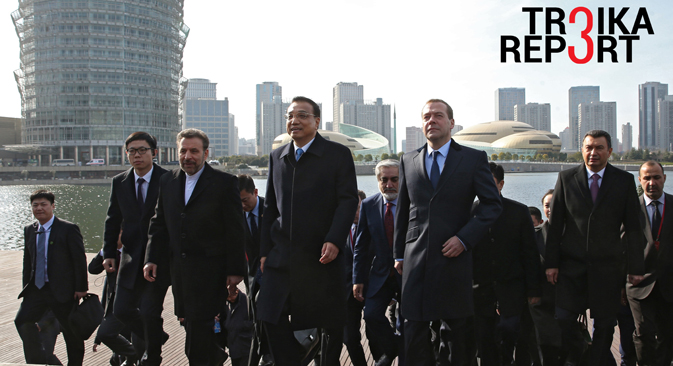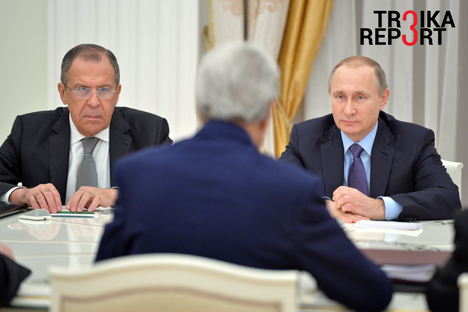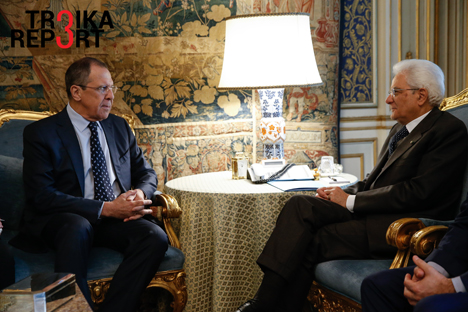Moscow and Beijing: hostages to Russia’s financial woes and yuan meltdown

Prime Minister Dmitry Medvedev and Premier of the State Council of China Li Keqiang after the 14th meeting of the SCO Council of Heads of Government and observer states' heads of delegation in Zhengzhou, China, Dec. 15, 2015
Ekaterina Shtukina / RIA NovostiWith China presenting both a challenge and an opportunity for Russia’s economic development, this week’s four-day visit to the neighboring giant by Russian Prime Minister Dmitry Medvedev is a critical test of the all-weather partnership.
Since 2014, when turnover between the two countries amounted to $88.4 billion, trade has taken a nosedive. The first quarter of 2015 recorded a drop of 33.6 percent, while the second quarter showed a fall of 27.1 percent, with forecast turnover sliding to around $67 billion – far from the ambitious goals declared by Moscow as part of its vaunted “pivot to Asia.”
Nevertheless, Moscow looks keen to maintain the privileged status of economic cooperation with the Middle Kingdom. Dmitry Medvedev not only attended the meeting of the Shanghai Cooperation Organization Heads of Government Council in Zhengzhou but conducted bilateral negotiations for the stated purpose of attracting “long-term investments, setting up mechanisms of easing and stimulating trade, and bringing closer practices in the sphere of standards, technical requirements and customs administration rules.”
Yet under the present dire economic circumstances Russia can hardly count on a bumper return from cooperation with China, with the exception of large-scale projects in transport infrastructure, the aviation industry, and nuclear energy, which remain on track.
Talking to Troika Report, Alexander Lomanov, head research fellow of the Institute of Far Eastern Economic Studies at the Russian Academy of Sciences, set the record straight on the strengths and weaknesses of bilateral interaction.
“This year was extremely difficult for Russia-China economic partnership. The reason is the lack of a sustainable model of growth in Russia. Some years ago there was an official declaration that trade turnover with China should reach $100 billion by 2015, and would then double by 2020. The first goal is evidently unattainable due to the collapse of the national currency, meaning the sharp and deep devaluation of the ruble. It also puts in doubt the chances of achieving the second goal set for 2020.”
– While Russia is a direct victim of the current spiraling of oil prices, China is thriving on this trend due to lower costs. How can you harmonize economies with such divergent base models?
“Russia faces the challenge of decreasing its dependence on oil sales. But now Russia can provide a new and efficient service in the transportation of export and import goods to and from China, linking it with Western Europe through the Eurasian transport corridor, either by land or along the North Sea Route.”
– Do you suggest that providing simply shipping services can generate handsome revenues?
“China currently explores the ways to implement the ‘One Belt, One Road’ project. ‘One Belt’ is about transportation and economic cooperation across Eurasia, including Russia, Central Asia, maybe Pakistan, Afghanistan, etc. ‘One Road’ is the new Silk Road, which is essentially a sea route from the South China Sea to the Indian Ocean and further on to Europe. But Beijing understands that this route is not absolutely safe. In case of tension or friction, it would endanger Chinese merchant shipping. That is why China is exploring the alternative: a northern route to be used for delivery of its goods from the East to the West, meaning to Europe.”
– What about the Shanghai Cooperation Organization? Some say there is a divergence of views between Moscow and Beijing on how it actually fits into the mismatched strategic priorities of the two nations. How true is this assumption?
“In his presidential address to the Federal Assembly, Vladimir Putin openly and explicitly said that he hoped the Shanghai Cooperation Organization would play a more significant economic role in the region. This has put to rest a dispute among Russian and Chinese experts. It was a long-standing assertion by Russian experts that the SCO is mostly a political and strategic asset, while Chinese colleagues pointed out that for Beijing it was a highly desirable economic tool of development and projection of its interests in the region.
“Under the current circumstances, Russia has modified its stance, placing emphasis on the economic side. These are the reasons that shaped the agenda of Dmitry Medvedev’s visit to China.”
Nevertheless, Moscow and Beijing do see eye to eye on one crucial issue with mostly political overtones: regulating the internet. In China, Dmitry Medvedev and Chinese President Xi Jinping addressed participants of a conference on “A Common and Jointly Governed World and the Development of an Internet Community with a Common Destiny.”
Both nations find it unfair that the Internet Corporation for Assigned Names and Numbers (ICANN), which coordinated the Domain Name System (DNS), Internet Protocol (IP) addresses, space allocation, protocol identifier assignment, country code (ccTLD) Top-Level Domain name system management, etc. has its roots in the U.S. government, and is a non-elected body with no legal responsibility to the multi-stakeholder internet community.
A proposal made by Russia and China in late 2013 to replace the ICANN, which is still supervised by an obscure agency within the U.S. Department of Commerce, by an international institution was derailed in May 2015 by U.S. Congress, which claimed this was not in Washington’s interests. It is likely that Dmitry Medvedev discussed ways of breaking this monopoly on the internet with Chairman Xi during his visit to China.
Apart from this apparent consensus, the question of stimulating bilateral economic interaction still remains hostage to what Mr. Lomanov terms as “lack of a sustainable model of growth in Russia.”
The opinion of writers may not necessarily reflect the position of RBTH or its staff.
Read more from Troika Report>>>
All rights reserved by Rossiyskaya Gazeta.
Subscribe
to our newsletter!
Get the week's best stories straight to your inbox

